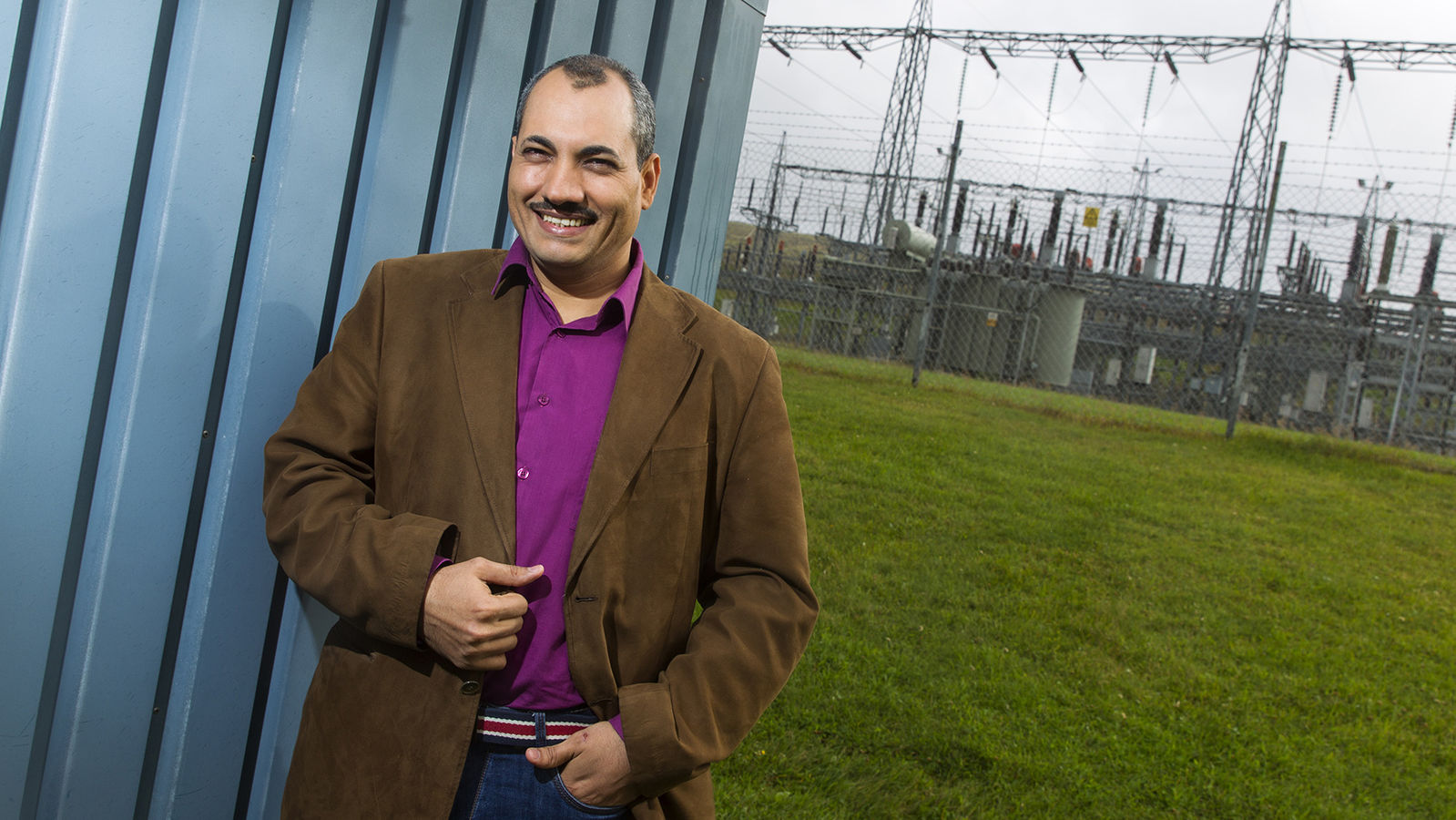A smart future for power transport
"My aim is to develop the subject of smart grids which is a hot topic these days. It is basically an intelligent power system that has a self-healing feature, supported by advanced protection systems with interactive automation and control. This also enables a successful integration of renewable energy sources."
 Mohamed Abdel-Fattah is an assistant professor in the MSc electrical engineering „Power Program“ at RU´s School of Engineering.
Mohamed Abdel-Fattah is an assistant professor in the MSc electrical engineering „Power Program“ at RU´s School of Engineering.
"The expected grid has a quick trouble-detection and auto-reconfiguration functions without human manipulation and is more intellectual. That way, appropriate automatic actions can be taken to isolate the fault, or remove the interruption, as quick as possible and restore the power to the greatest number of customers. The utility repair crews would be notified quickly by the type and geographic location of the fault or interruption, to minimize the repair time. The main reliability goal is to minimize the number of interruptions and/or its duration/time for minimum number of customers."
Double degree from RU and Aalto
Mohamed has been researching power grids and the distribution of energy in Scandinavia for the last several years. He joined RU after years of research and teaching at the prestigious Aalto University in Finland. Electrical Engineering students at RU can now complete a double degree from Reykjavik University and Aalto.
 "The programme here at RU is recent but where I´m from, in Egypt, it is a very big field of research and teaching. Electric power engineering is sometimes referred to as the engineering subject that everyone forgot - unless you lose the electricity in a cold dark winter night, and without technology facilities!
"The programme here at RU is recent but where I´m from, in Egypt, it is a very big field of research and teaching. Electric power engineering is sometimes referred to as the engineering subject that everyone forgot - unless you lose the electricity in a cold dark winter night, and without technology facilities!
What that means is perhaps that the emphasis has been on information technology and other areas of engineering. But we do need more specialists in this engineering field. That is why I think my students have a very good chance of employment both here and internationally."
Icelandic system under great stress
Mohamed says the main delivery system here in Iceland is good but the aging of the transmission system in such harsh weather conditions may lead to many problems. "It is OK for now but in my opinion we shouldn´t wait any longer and something needs to be done now. I understand that it is a big challenge. For instance, the localized and growing demand of aluminium production, which consume with other power intensive industries about 80% of all the electricity in Iceland, places great stress on the system and that needs to be addressed. Furthermore, there are many geographical and meteorological aspects that have to be considered. The weather here is not very friendly!"
Reliability is key
His research, and that of his students, focuses on the reliability of energy transport. "Here we have ice and we have a very strong wind. There is always a possibility here that the power goes off and perhaps a whole factory has to shut down. The questions we are answering is how can we make the power transfer more reliable and efficient? How can we stop these accidents from happening and become more immune to limit it? And if happened how could we minimize its impact? So as a customer you never have to shut down.“
He says the final goal is to have sustainable delivery, economic and reliable of electricity. "In the future, I expect good collaboration with generation, transmission and distribution companies in Iceland such as Landsvirkjun, Landsnet and Orkuveita Reykjavíkur."

